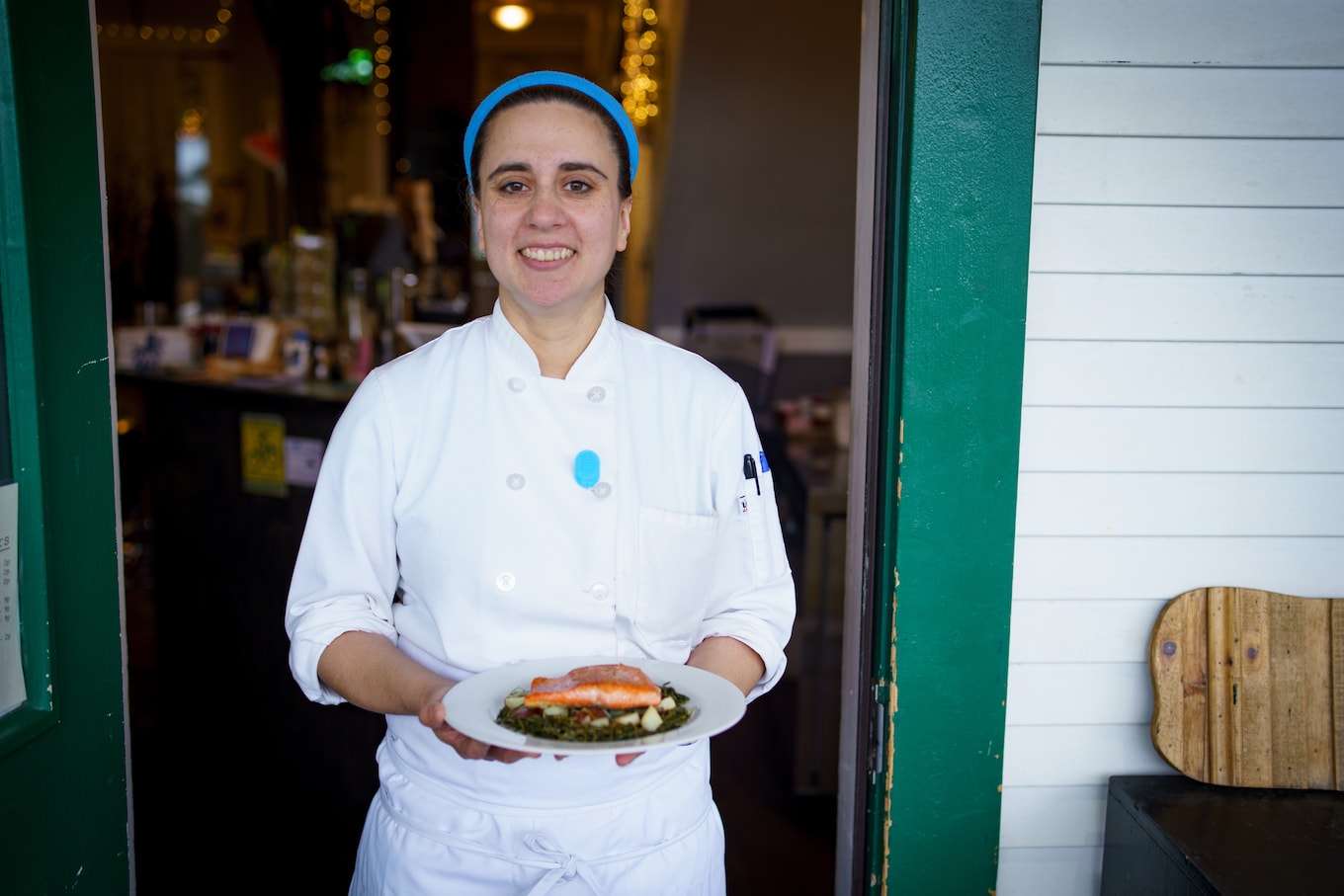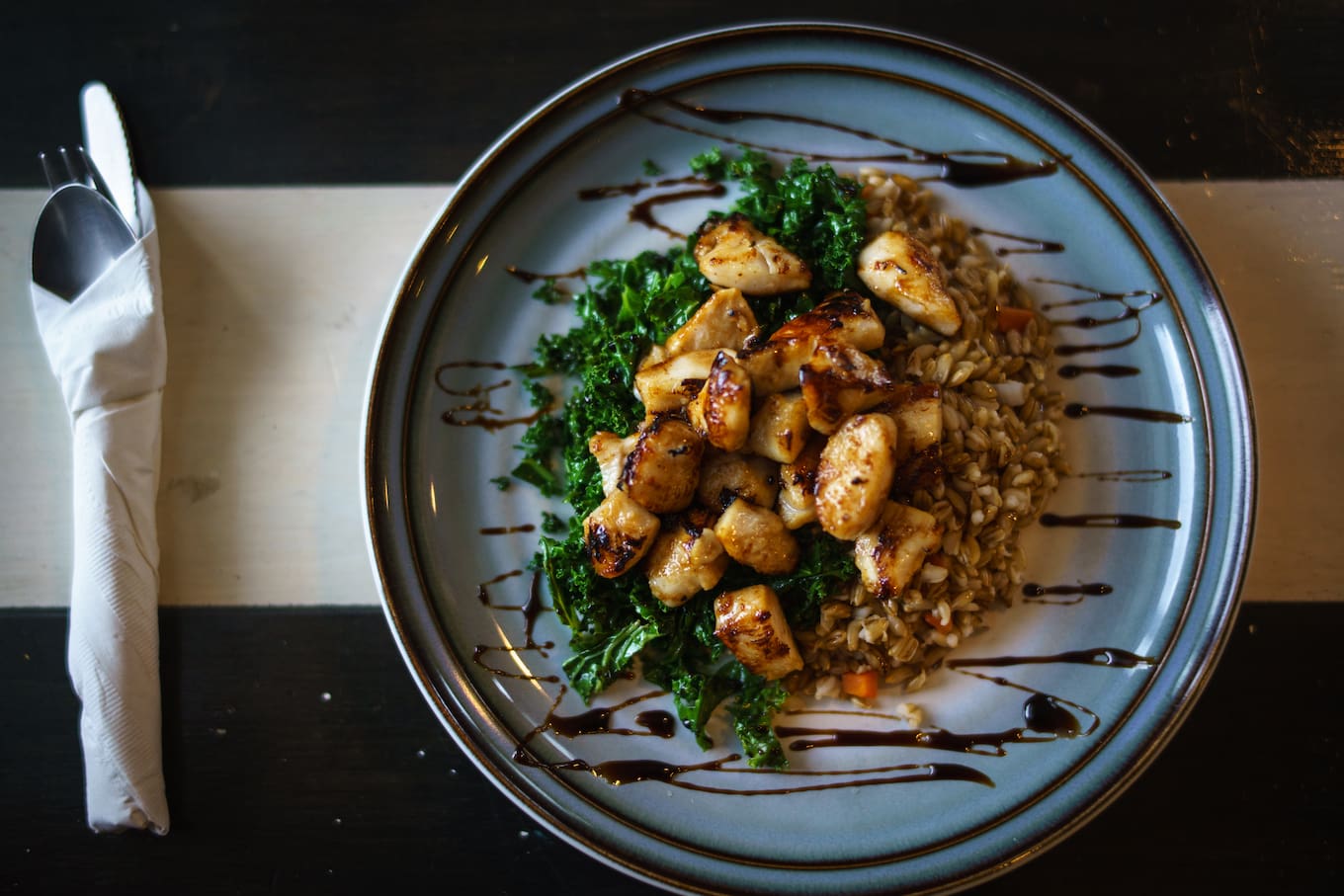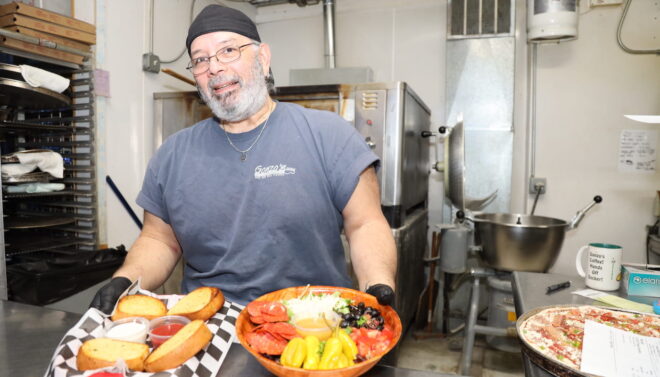Beak Restaurant
Editorial Team
7 min read
Our Meet the Merchant series features Q&As with real-world Clover merchants. Read our full catalog for innovative ideas and real-life stories of small businesses in action.
In this installment, we meet Renee Trafton, owner of Beak Restaurant in Sitka, Alaska. Beak offers inventive dining options that feature local ingredients. In our conversation, Renee shares how she ended up in Sitka, why Clover is the right system for her, and how their menu has changed as a result of the COVID-19 pandemic.
Clover: Good morning, Renee! Can you start by telling us how you came to run a restaurant in rural Alaska?
Renee Trafton: Sure! I moved from NYC to Sitka six years ago. In New York City I was working at a number of Michelin-starred restaurants. I loved the attention to detail and care put into the food, as well as the genuine hospitality and care for the guest’s experience that exists in high-end NYC establishments. Six years ago, though, my husband (boyfriend at the time) got a job in Southeast Alaska, and we decided to make the journey together.
Here in Sitka, three years later, I had the opportunity to buy an existing restaurant. It was well equipped already—ovens, tables, chairs, forks, even the Clover point-of-sale system—so I just needed a week of turnaround time before I reopened it as Beak.
One of the biggest local industries in Sitka is commercial fishing, but strangely, there wasn’t a seafood restaurant in town—nor was there a restaurant focusing on local, Alaskan specialties. I felt like there was a gap in the market, so I went for it. It has worked out really well. Locals are excited to eat the locally caught wild fish, and they are also happy to support other Alaskan businesses. In addition to the fish I buy in town, I buy specialty sea salt in Sitka, reindeer sausage from Anchorage, bacon from Wasilla, and barley from Delta Junction. I have also bought beach asparagus, bull kelp, and wild mushrooms from local foragers. Tourists are very pleased with the unique, Alaskan fare—I try to give them a taste of the Southeast Alaskan lifestyle.
I like taking care of people and creating a dining experience, but I didn’t want to charge people exorbitant prices. I have a varied menu, but generally my food at dinner is fine-dining quality in a casual environment where people can really enjoy themselves.
Clover: So interesting that you inherited Clover. Did you consider other options?
Trafton: As a responsible business owner, I did consider other options, but it would have been harder to change than to keep things as they were. If I had run into problems, I would definitely have changed systems, but it’s been great. Customer service has been really responsive, and all of my questions and issues have been resolved swiftly. The system we inherited included Clover Dining. It works well to keep things moving with great communication between front-of-house and the kitchen.
Clover: How has Clover helped your business?
Trafton: We have the Station Pro and two Flex devices. We love being able to use the Flex to take payments at the table, and it makes splitting the bill between credit cards easier and faster. Recently, we started using Clover Online Ordering to help us manage carry-out orders and minimize direct contact with our customers. It’s great! It was easy to set up, and it saves us a lot of time on the phone. Having less time on the phone is useful because we can attend to customers who are present at the restaurant ordering take-out at the door.
On Sunday mornings I make donuts, and we open up the Online Ordering system for pre-order the night before. It makes it really easy for both us and the customer, because it lets us have everything ready for take-out right when we open. We have been trying to social distance as much as possible, so this has been very useful.
Clover: Who is your clientele at Beak?
Trafton: In the winter, we have a lot of locals, which we really enjoy. We love getting to know our neighbors and seeing them regularly. It’s often a gathering place for the community to come together for regular family meals or for dates or special occasions, to have a drink after work, or to play board games and make new friends. Beak is also a casual venue for local musicians—we have monthly open mic nights, pick up-folk music at brunch on Sundays, Irish music on Saturdays, and various other musicians. In the summer, we have a lot of tourists. Roughly 200,000 cruise ship passengers stop in Sitka every summer, and there are a lot of people who come to fish and stay nearby. It’s a nice mix.
Last summer I met several fishermen who would bring me king salmon right off the boat. We’d serve it freshly seared on a cedar plank with a salad and guests would be delighted. It’s really nice to serve beautiful, fresh, delicious fish that provides a meaningful experience and a lasting memory for our guests.

Clover: Let’s talk about the effects of the COVID-19 pandemic. How has Beak adapted?
Trafton: We closed for six weeks. Then we opened up for takeout, and it’s been going okay. It’s just me and my husband who have been running it, with some help from our daughter, because we’re in a quarantine bubble together, and we didn’t want to put our staff at risk. The kitchen is a small space.
We have a really nice patio in the back and so we might try to do some outdoor dining this summer. Luckily our overhead is pretty low, so I know we’ll make it through this. It’s just not going to be fabulously profitable. But what restaurant is this year?
Clover: Did you adjust your menu for takeout, or is it basically the same?
Trafton: It’s a limited menu now, and I’ve focused on dishes that travel well. For example, on Mother’s Day I did quiches instead of scrambles because they serve multiple people, reheat well in a home oven, and are still really delicious. I also started making a rockfish shepherd’s pie—like a rockfish chowder with mashed potatoes on top in a foil container so you can take that home and heat it up easily, too. I feel like people have been more interested in comfort food during this pandemic.
Clover: I notice that you’re a gratuity-free restaurant. How does that work and why did you make that decision?
Trafton: We’ve done this from the start! After living and working in New York City, I’m aware of the huge income disparity that can exist between the kitchen and the front-of-house. I believe in honest pricing and charging what I need to in order to pay my staff a living wage. Even though my prices are slightly higher than I would normally have, they are still comparable to other restaurants in town—especially when you consider the tip. Here in Alaska, it gets pretty slow in the winter, and my staff need to receive a consistent paycheck. I guarantee a flat hourly wage, and I’ve been really happy with the quality of workers that I can attract.
I also feel like it removes the awkwardness of tipping after the meal. That’s been good for morale because when my employees aren’t concerned with getting their tip, they can focus on providing great service. When you work for tips, if someone stiffs you, it can wreck your mood. I like removing that variable from the system. I’ve really appreciated how easily Clover’s system has allowed us to opt out of the tipping part of the equation. It is really important for me to be able to pay quality employees all of the time, and I’d love to see other restaurants adopt similar policies.
Related Posts
Celebrating merchants who’ve overcome major stressors to build a business and support their communities
Gonzo’s Rock And Roll Pizzeria
Popular Topics
Stay in touch
Sign up and learn more about Clover.
Thank you for your subscription!
More posts about starting a small business
eBook





